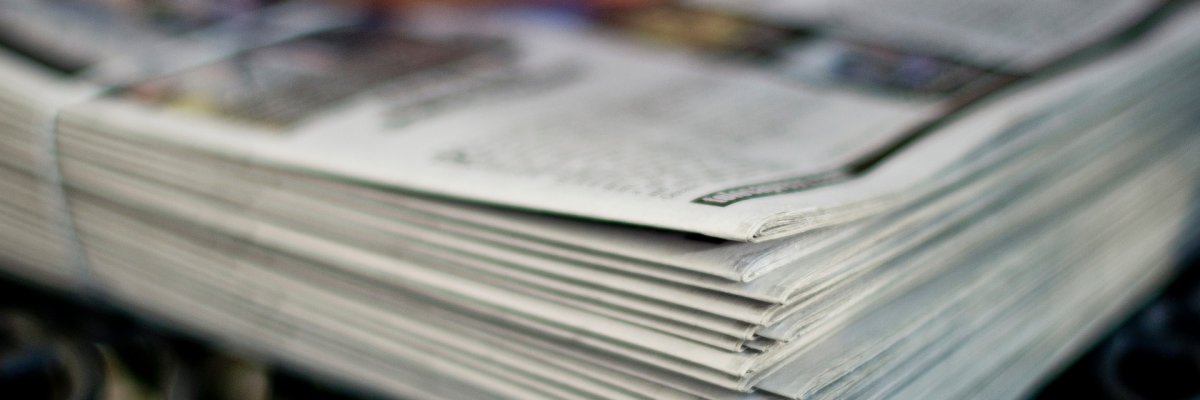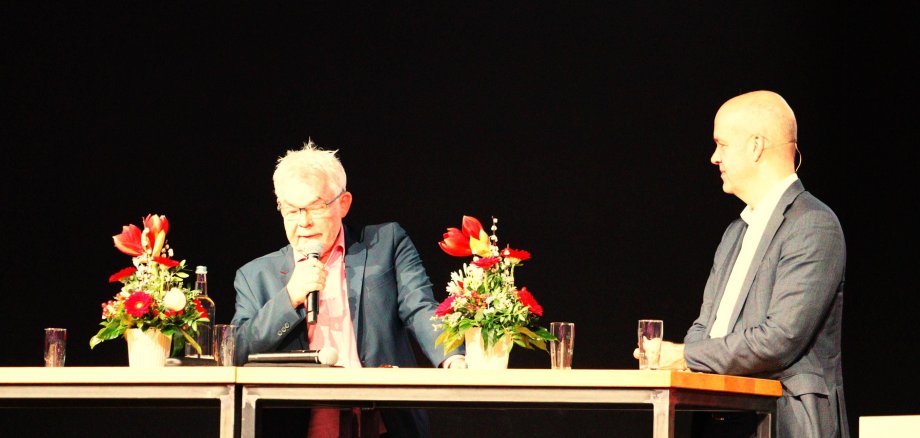New prospects for the economy
Economist meets reporting legend
What challenges are companies facing today? What can be done about the shortage of skilled labour? How can the energy transition be organised and how can bureaucracy be reduced?

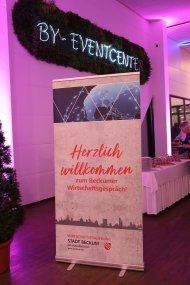
These and other questions were discussed in the economic discussion entitled "New perspectives for the economy" with Marcel Fratzscher, President of the German Institute for Economic Research (DIW Berlin). Manni Breuckmann moderated the lively panel discussion, which was later expanded to include Mayor Michael Gerdhenrich, entrepreneur Katrin Horsthemke and Blumenbecker Managing Director Olaf Lingnau. The legendary sports reporter was not only well versed in the subject matter, Breuckmann also asked his questions in a witty, accurate and provocative manner with a twinkle in his eye. The serious topics were presented with the necessary respect, but at the same time in an entertaining and relaxed manner.
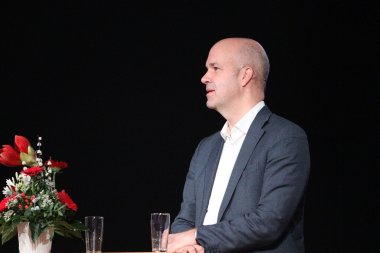
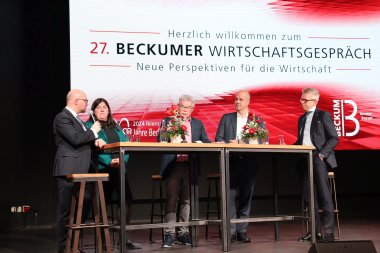
Where do we stand today on a scale of 1 to 10? While the scientist sees Germany at a 9 in a global comparison, Lingnau takes a much more pessimistic view of the economic future, awarding it only 4 points. "We have to get up to speed, but I'm sure we'll manage that in the next 10 years," says the guest from Berlin. The Managing Director of Blumenbecker, on the other hand, identifies multiple crises and is concerned about the increasing relocation of production abroad. "And then, unfortunately, we still lack the infrastructure for topics such as e-mobility, which is completely different in China. First there is the infrastructure, then the e-cars," explained the entrepreneur. Katrin Horsthemke believes her company is currently in a good position, but recognises that customers are increasingly reluctant to buy.
Everyone agreed that the shortage of skilled labour is a major problem. There are already 1.7 million vacancies, Fratzscher emphasised. "That will increase significantly when the baby boomers retire." His solutions: A more flexible retirement age, increasing the employment of women, immigration, as there is a shortage of labour in all areas.
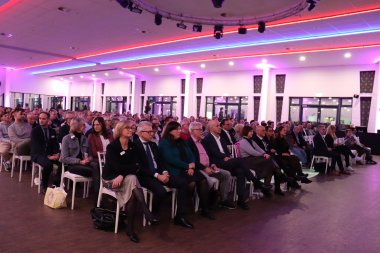
The tax system is detrimental to the German economy, says Fratzscher. Small and medium incomes should be taxed less, while large passive assets should be taxed much more heavily.
And climate change? "We are about to miss the 1.5 degree target," Fratzscher is certain. "But we're on the right track worldwide," and mentions e-mobility, green steel and heat pumps. A good example is Norway, where around 80 per cent of houses are already heated with heat pumps. But: "People have to support the changes."
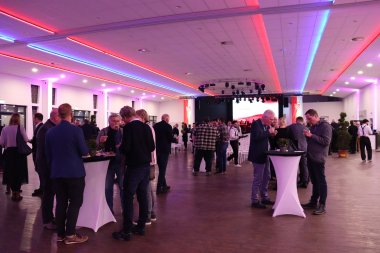
Should the debt brake be relaxed? This is not the main solution, says the scientist and does the maths of good debt: 100 euros invested in education will be returned in the long term in the form of 200 to 300 euros higher tax revenues, as good qualifications lead to good earnings. Cuts to citizens' income are not an option, especially as a third of citizens' income recipients are children.
The mayor emphasised that it was important not to play interests off against each other. Media-driven discussions, for example on the topics of citizens' income or tax increases, were missing the point. There are conflicts of interest in some areas, such as the desire to reduce bureaucracy and expand the mobile phone network at the same time. "We have to have these discussions," says Gerdhenrich.
Marcel Fratzscher is President of the German Institute for Economic Research (DIW Berlin), Professor of Macroeconomics and Finance at Humboldt University Berlin and a member of the Advisory Board of the Federal Ministry of Economics. He regularly ranks among the top 5 in the Frankfurter Allgemeine Zeitung's annual ranking of Germany's most influential economists.
After studying law, Manfred (Manni) Breuckmann initially worked for the Press and Information Office of the Federal Republic of Germany. He then worked as a radio presenter with a particular passion for football reports at WDR, where he became known as the "Voice of the West". Another focus of his journalistic work was on regional politics. Today, the 73-year-old is a freelance presenter, lecturer, author and podcaster.
